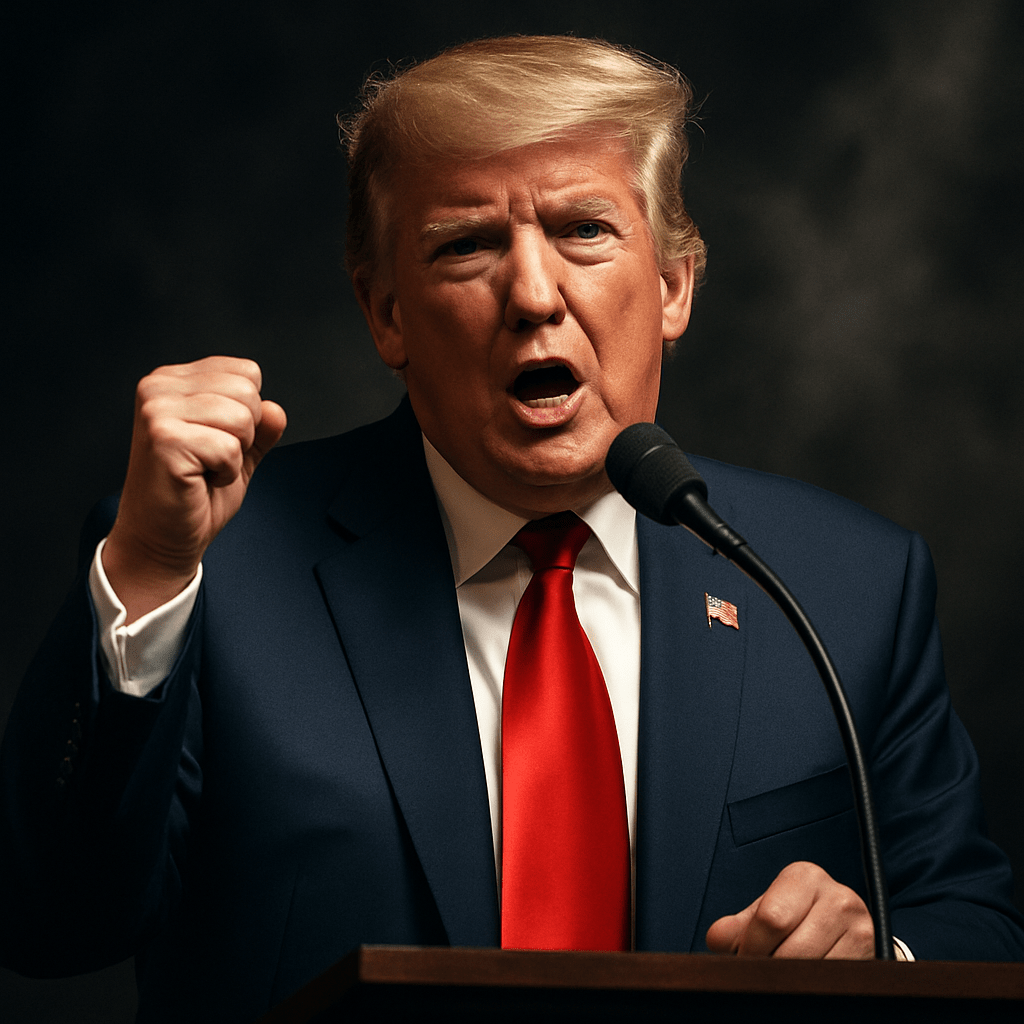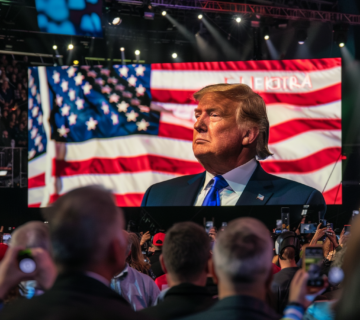In recent months, US media legal battles have captured national attention, and for good reason. From Donald Trump’s explosive lawsuit against The New York Times to TikTok’s efforts to moderate offensive merchandise, the clash between press freedom, online content, and public accountability has reached a boiling point.
Although these stories might seem disconnected at first glance, they’re all part of a much larger question: Who decides what information is true, and who gets to say it? Let’s unpack what’s happening and more importantly why it matters for every one of us scrolling through headlines or feeds.
Trump Sues The New York Times, But Why Now?
To begin with, Donald Trump has launched a massive $15 billion defamation lawsuit against The New York Times and a book publisher. He claims that stories and a political book unfairly painted him as dishonest, irresponsible, and self-serving.
In this case, Trump argues that journalists acted with “actual malice” meaning they either knew they were publishing falsehoods or simply didn’t care whether their claims were true or not. As a result, he says the articles caused personal and financial harm, including damage to his company’s reputation.
Yet, here’s the catch: under U.S. law, public figures like Trump have to meet a very high standard to win defamation lawsuits. Unlike private citizens, they must prove the publisher knowingly lied or acted recklessly and that’s extremely difficult.
Still, even if he doesn’t win in court, the lawsuit itself sends a message. It signals to the press that aggressive reporting could come at a cost. And that, in turn, could make newsrooms think twice before hitting “publish.”
Political Figures vs. The Press: A History of Friction
Of course, this isn’t the first time politicians and the media have butted heads. In fact, tensions between the press and powerful figures are as old as the republic itself.
Consider this: the landmark case New York Times Co. v. Sullivan in 1964 established that public officials must prove actual malice to win a libel suit. This precedent was put in place to protect free expression, particularly when it involves public debate.
Fast forward to today, and the relationship between politicians and the press feels more strained than ever. While past presidents have criticized media coverage, the current era is different. Lawsuits, social media callouts, and accusations of “fake news” have become part of the political playbook.
Consequently, we’re seeing an increase in legal threats, not to necessarily win but to intimidate or discredit media organizations. It’s a tactic that has ripple effects on journalism and public trust alike.
TikTok Faces Backlash Over Antisemitic Merchandise
Meanwhile, in the digital sphere, social media platforms are dealing with their own battles, not in court, but in the court of public opinion.
Recently, TikTok removed antisemitic products from its marketplace after backlash from users and advocacy groups. Offensive merchandise had been available through TikTok’s shopping features, sparking outrage and raising questions about the platform’s oversight.
This situation highlights something much deeper. TikTok, like many platforms, isn’t just a place for dancing videos and memes anymore. It’s now a retailer, a broadcaster, and a content host all at once. As such, it’s being held to higher standards.
Accordingly, people are demanding that platforms take more responsibility for what they allow, not just in posts or videos, but in what they sell and promote. And rightfully so, because the consequences go far beyond one offensive T-shirt.
How Much Should Social Platforms Moderate?
At this point, the discussion gets trickier. Social platforms are being pulled in two different directions and no matter what they do, someone’s bound to be upset.
On the one hand, there’s strong public pressure to clamp down on hate speech, misinformation, and harmful content. Especially when platforms reach billions of users, the potential harm from one unchecked post can be enormous.
On the other hand, there are concerns about free speech and censorship. If platforms act too aggressively, they might silence legitimate voices or unpopular opinions. After all, who decides what’s “too far”?
Moreover, content moderation is messy. Algorithms miss context. Human reviewers make mistakes. Policies evolve. And when money is involved like in TikTok’s case. business interests sometimes clash with ethical ones.
Still, one thing is clear: the days of social media platforms claiming they’re just “neutral” tech companies are long gone.
What Press Freedom Means And Why It’s Under Pressure
Let’s not forget the foundation of all this: freedom of the press. It’s one of the core principles of democracy in the United States. The First Amendment guarantees that the media can investigate and publish without interference from the government.
However, legal threats like defamation lawsuits, even when unlikely to win can have a chilling effect. Journalists might start to avoid certain stories or soften their language, simply to avoid risk.
What’s more, the media business itself is facing financial stress. Fewer ad dollars, more competition from influencers and online creators, and growing public skepticism all add to the pressure. That makes freedom of the press more fragile and more important than ever.
Looking Ahead: What This Means for the Future
As we look to the future, one thing becomes obvious: these legal and cultural battles are reshaping how we share, receive, and believe information.
Firstly, if lawsuits like Trump’s become more common, even baseless ones could make journalists think twice. Secondly, platforms may be forced to overhaul their content policies and possibly face stricter government regulations. Thirdly, we could see more political polarization over what counts as “truth,” further dividing how Americans interpret news.
That’s why all of this matters not just to lawyers, editors, or tech executives, but to you. Your feed, your favorite news site, your sense of what’s real, it’s all affected by these fights over content, credibility, and control.
Why US media legal battles matter for you
So what does this all mean for your everyday life?
It means that the articles you read, the headlines you believe, and the videos you share don’t exist in a vacuum. They’re shaped by policies, lawsuits, algorithms, and editorial decisions all happening behind the scenes.
If we allow lawsuits to scare off truth-tellers, or let platforms ignore the harm in their content, the result is the same: we lose trust. And once trust in media or digital platforms disappears, misinformation fills the gap.
The more informed you are about how the system works and how it can be manipulated, the better equipped you’ll be to navigate it.
FAQs On US media legal battles
Diversify your sources. Check the facts. Support journalism that holds power accountable. And stay curious because truth isn’t always loud, but it’s always there.
It’s tough. He has to prove the journalists knowingly lied or acted recklessly, which is hard to do. Most such cases are dismissed or settled quietly.
Not exactly. Social platforms aren’t the government, so they can set their own rules. But the public still expects fairness, transparency, and accountability.
Because it functions as both a platform and a marketplace. When offensive products show up for sale, users expect TikTok to take responsibility.
Yes, but not from censorship in the traditional sense. The threat comes from lawsuits, financial pressure, and public distrust all of which can weaken independent reporting.
Final Thought
In the end, these US media legal battles from Trump’s courtroom drama to TikTok’s moderation dilemmas are more than news stories. They’re signs of a shifting media landscape, one where truth, power, and freedom are constantly being renegotiated.
Whether you’re reading an article, watching a video, or buying a product online, remember this: the fight over information is also a fight for your trust. And that’s something worth paying attention to.





